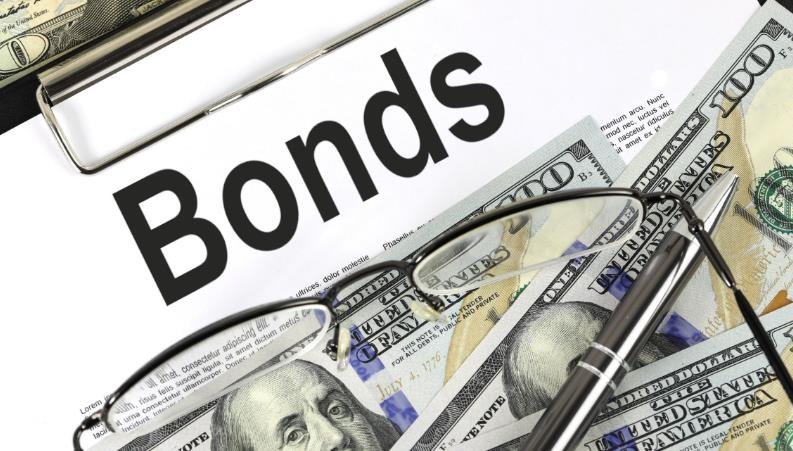Egypt’s sovereign dollar bonds and its currency, the pound, have risen sharply in the past few days, reflecting the improving economic outlook and the positive market sentiment towards the country. Egypt’s dollar bonds have outperformed most of its peers in the emerging and frontier markets, while the pound has gained momentum against the dollar in the official and parallel markets.
Egypt’s sovereign dollar bonds have jumped more than 1 cent on the dollar since last week, reaching their highest levels since March 2020, before the COVID-19 pandemic hit the global economy. According to Tradeweb data, the bonds due in 2032 and 2033 rose more than 5 cents on the dollar on Monday, their biggest-ever daily increase. The bonds due in 2048 and 2050 also gained more than 4 cents on the dollar.

The rally in the bond market was driven by several factors, including the strong performance of the Egyptian economy amid the pandemic, the successful implementation of the economic reform program, the progress in the negotiations with the International Monetary Fund (IMF) and other multilateral lenders, and the easing of the political and security tensions in the region.
Egypt’s economy grew by 3.6% in the fiscal year 2020/2021, which ended in June, making it one of the few countries in the world to achieve positive growth amid the pandemic. The growth was supported by the resilience of the domestic demand, the recovery of the key sectors such as tourism, manufacturing, and construction, and the expansion of the public investment and social protection programs.
Egypt also completed the second review of its $5.2 billion standby arrangement with the IMF in June, unlocking the third tranche of $1.7 billion. The IMF praised Egypt’s economic performance and its commitment to the reform agenda, which aims to enhance the fiscal and monetary stability, boost the private sector development, and improve the governance and transparency. Egypt also secured $1.15 billion in financing from the World Bank and the African Development Bank in July, to support its health, education, and social protection sectors.
Egypt also benefited from the positive developments in the regional and international arena, such as the normalization of relations with Qatar, the ceasefire agreement with Ethiopia over the Nile dam dispute, and the revival of the tourism and trade activities with the Gulf countries and Europe. These developments have improved the investor confidence and the risk perception of Egypt, as well as increased the inflows of foreign currency and remittances.
A surge in the currency market
Egypt’s currency, the pound, has also appreciated significantly against the dollar in the past few days, both in the official and parallel markets. According to the Central Bank of Egypt, the pound strengthened by about 2% to 30.7 per dollar on Monday, its highest level since February 2020. According to multiple traders and importers Bloomberg spoke with, the pound also gained by about 20% to 50 per dollar in the parallel market, narrowing the gap with the official rate.
The surge in the currency market was also influenced by the same factors that boosted the bond market, as well as by the increased supply and reduced demand for the dollar in the local market. The Central Bank of Egypt has been able to accumulate more foreign reserves, reaching $40.6 billion in June, the highest level since March 2020. The bank has also been able to intervene in the foreign exchange market to stabilize the exchange rate and meet the importers’ needs.
The demand for the dollar has also declined in the local market, as the importers have reduced their purchases due to the high prices of the global commodities and the low domestic consumption. The exporters have also increased their sales of the dollar, as they have benefited from the recovery of the external demand and the competitiveness of the Egyptian products. The parallel market has also witnessed a decline in the speculative activities and the illegal transactions, as the authorities have intensified their efforts to crack down on the black market dealers and enforce the foreign exchange regulations.
The appreciation of the pound has had positive effects on the Egyptian economy, as it has reduced the inflationary pressures, increased the purchasing power of the consumers, lowered the cost of the external debt service, and enhanced the attractiveness of the Egyptian assets. The inflation rate has declined to 4.9% in June, the lowest level since November 2019. The external debt service has decreased to $10.6 billion in the fiscal year 2020/2021, compared to $13.4 billion in the previous year. The Egyptian assets have witnessed a strong demand from the foreign investors, who have increased their holdings of the local treasury bills and bonds by $3.5 billion in the first half of 2021.
Egypt’s dollar bonds and pound have shown remarkable resilience and recovery amid the COVID-19 pandemic and the regional and global challenges. Egypt’s dollar bonds and pound have reflected the improving economic outlook and the positive market sentiment towards the country.
